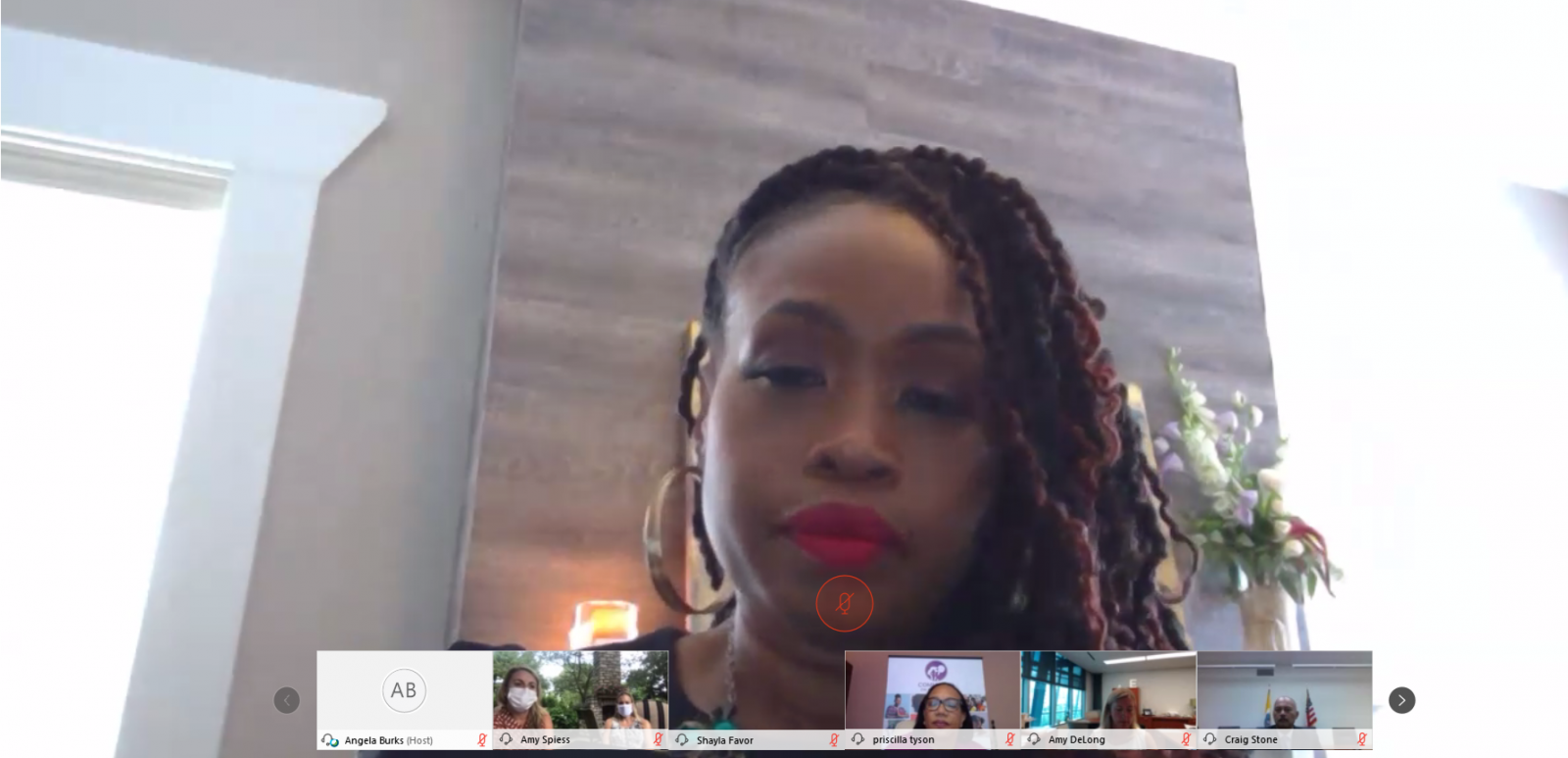Hate group discussion gives historical context to policing

Current CPD screening process explained
Columbus City Councilmember and Chair of the Criminal Justice Committee Shayla Favor held an informative and at times eye-opening public hearing regarding the expansion of hate group affiliation background checks.
Although no legislation was announced during the discussion, the point of the meeting was to have educational and collaborative conversations with experts in the field of systematic racism, psychology, and policing. Favor did mention that legislation defining more strict background checks for police officers potentially in hate groups or possibly affiliating with those groups would be drafted by the end of the month.
At the time of publication, Columbus City Council couldn’t say if a Columbus police officer was affiliated with a hate group.
Two-plus hours of presentations held by those representing education (Dr. Judson L. Jefferies, an OSU professor in the Department of African American and African Studies), civil service (Amy DeLong, executive director of the Civil Service Commission), and police (Richard Blunt II, Safety Manager of the Background Investigations segment of the CPD) preceded public testimony.
During the discussion, bits of historical facts and information were inserted giving a more robust understanding to the context of the topic. For example, there are 1,000 to 1,100 hate groups in the United States that we’re able to identify, according to Jefferies. Jefferies also pointed out that there is less concern about the number of members, and more concern about the number of supporters.
He also mentioned that in the 1960s, police would post ads to recruit Southern-minded people to become police officers in Chicago and Los Angeles. Jefferies did acknowledge that being a police officer is the hardest job of any street bureaucrat because they see the worst of the human condition.
BROUGHT TO YOU BY
The current screening process of the CPD, as it pertains to hate group affiliation, was presented by Blunt. This is what it looks like::
- Personal History Statement (PSH)—Undetected Acts
- At any time in your life have you ever committed a hate crime?
- Are you now, or have you ever been a member or associate of a criminal enterprise, street gang, or any group that advocates violence against individuals because of their race, religion, political affiliation, ethnic origin, nationality, gender, sexual preference, or disability?
- Has any member of your family ever been a member of, or associated with any, street gang or organized criminal enterprise such as outlaw motorcycle groups, prison gangs, or tagging crews?
- Do you have, or have you ever had, a tattoo signifying membership in, or affiliation with, a criminal enterprise, street gang, or any group that advocates violence against individuals because of their race, religion, political affiliation, ethnic origin, nationality, or gender.
- Tattoo Policy
- Shall have no visible tattoos on the head, neck, or hands
- Shall have no tattoos that depict obscene, gang-related, extremist or otherwise offensive images, which may bring the Division into disrepute
- Visible and exposed tattoos are photographed
- Polygraph Examination
- Taken to an ID UNIT where they are fingerprinted and taken photographs of their visible and exposed tattoos
- Pre-interview to meet with background investigator and go over PSH with candidate one more time
- Taken to polygraph unit where they answer over 100 questions before being hooked up to a polygraph, some being:
- To your knowledge, have you, your spouse, significant other, any member of your family, or close friends ever been associated with any subversive, radical, or terrorist organization, such as hate groups or gangs?
- Have you ever posted offensive, derogatory, or racist material to social media?
- Right before the polygraph, the candidate is given four documents called mind maps, which include falsifying information, illegal substance use, sex offenses, serious crimes (hate crimes, racially-motivated crimes, gang membership, terrorist sympathizer), and to tell the interviewee if anything comes to mind that the candidate hasn’t already discussed.
- Once hooked up to the polygraph, they will be asked if they are concealing any of those crimes, and will come up with one of three results:
- Deception indicated
- No deception indicated
- Inconclusive
With that being known, there are definitely improvements to be made in how the CPD does intensive background checks when it comes to hate group affiliation. By the end of July, the Columbus City Council hopes to have legislation drafted on hate-group screening.
BROUGHT TO YOU BY




